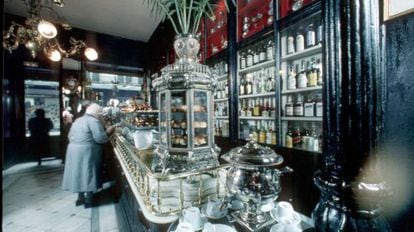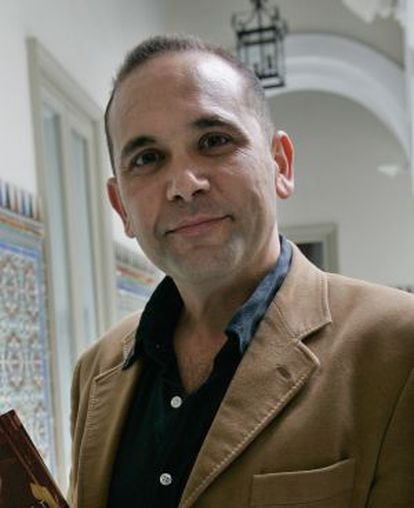Spain’s hidden Nazis
A new book examines the country's involvement with the Third Reich


They were spies -- or Nazis protected by the Franco regime -- and in the Madrid of the 1950s it wasn't strange to seem them about town, particularly in restaurants and bars such as Chicote, Horche, Lhardy and Pasapoga, as well as the botanical gardens, the Museo del Ferrocarril, Atocha railway station, the Plaza Mayor and Plaza Santa Ana.
Germans who actively collaborated with Hitler found shelter in Franco's Spain in the aftermath of World War II. They became men and women who lived problem-free in a country still impoverished by the Civil War.
The story of these characters and the period stretching from the 1930s to the 1950s has always attracted Sevillan writer Andrés Pérez Domínguez, who researched the era for years to write El violinista de Mauthausen (or, The violinist of Mauthausen) and now El silencio de tu nombre (The silence of your name), which has just been published by Plaza&Janés.
The novel goes into depth about Spanish involvement in the Holocaust and the business links the country's entrepreneurs maintained with the Nazi regime.
"The Franco government allowed the Germans to extract wolfram, a strategic chemical element, from its mines in order to use in their combat machinery and to exploit its properties to strengthen projectiles, especially anti-tank missiles, and other armaments," says Pérez Domínguez. Before the start of World War II, there were six companies dedicated to extracting wolfram; by the end of the conflict, there were as many as one hundred.

In exchange the government received 87,422 kilos of gold: in fact, many of the gold ingots that reached Spain were engraved with the Nazi swastika.
Part of the gold - the majority taken from occupied zones - was melted down and disappeared, or at least no data exists to certify where it ended up.
"The Germans couldn't have taken wolfram out of the country because in 1939 Franco created a law ruling that no foreign nation could own more than 25 percent of the capital in Spain. In order to get around the legal problems, the Germans devoted themselves to looking for Spanish straw men to pretend to be the owners in the companies. Among those people who stand out in this scheme is José María Martínez Ortega, father of Cristóbal Martínez Bordiú; Franco's son-in-law," notes Pérez Domínguez.
The novel, which mixes adventure, intrigue and romance, reflects sharply on the state of Europe after World War II, devastated by intolerance and political fanaticism. The story begins in 1950 in Paris when Erika Walter, widow of a German secret agent, flees to Madrid with important documents involving some top Nazi leaders in exile. Her lover, Martín Navarro, a Spaniard and former Communist Party member, decides to follow her, despite knowing that if the police find him back in Spain they will throw him in jail.
The couple find themselves wrapped up in a plot involving the police, Nazis, communists and CIA agents.
El silencio de tu nombre is also dedicated to examining the businesses that some Spaniards set up with the Nazis.
"They had no scruples about storing the money the Germans took from occupied countries and providing them with refuge or aiding their escape to other countries," says Pérez Domínguez.
In fact, several Nazis lived quietly in Spain until they died as old men.
"It was a way of telling via fiction that this country was not neutral during World War II. There were people, linked to Francoist power, who exploited and benefited from the plundering carried out by Hitler's acolytes in the countries that were occupied. I like to go deep into the past of my characters and get the reader to think about how their present is conditioned by events that took place many years before."










































